12 Tasty Ways To Boost Your Gut Health With Probiotics
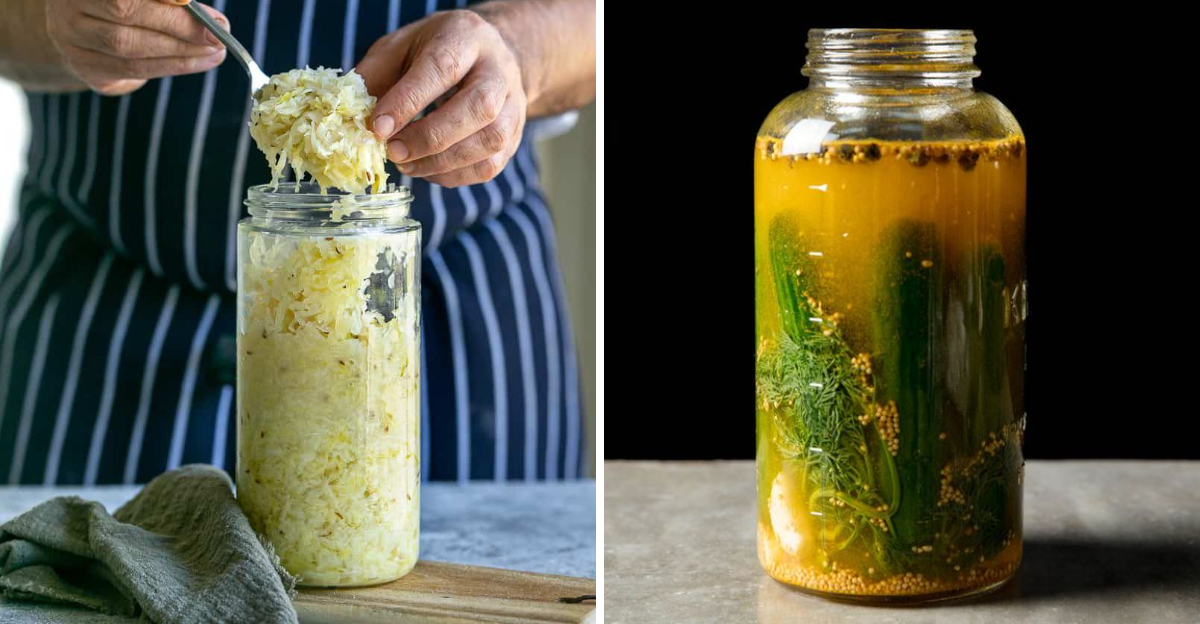
Probiotics are live microorganisms that, when consumed in adequate amounts, confer a health benefit on the host, particularly for gut health. They can be found in a variety of delicious foods that not only enhance gut flora but also add flavor and texture to your diet. Here are 12 tasty ways to incorporate probiotics into your meals, each offering unique flavors and health benefits.
1. Yogurt with Live Cultures
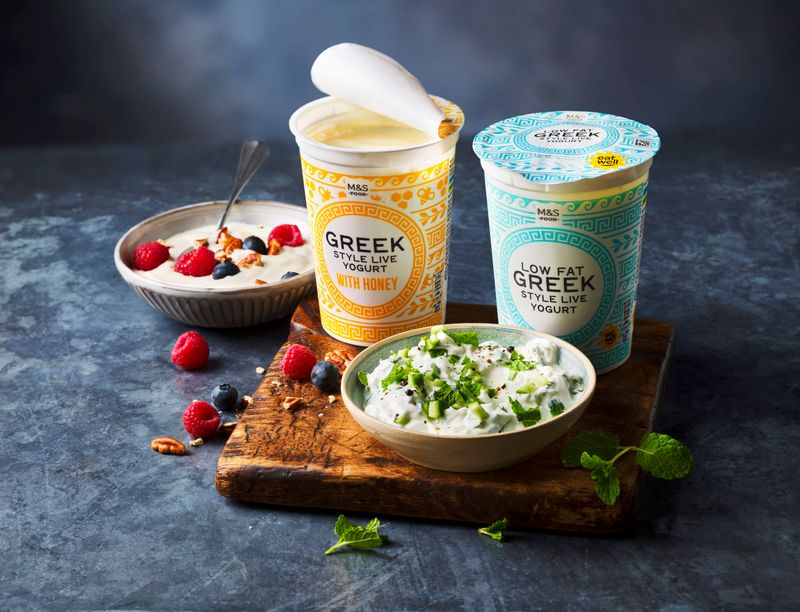
A staple in many households, yogurt with live cultures is a delicious way to enhance your gut health. When choosing yogurt, look for labels that confirm the presence of “live and active cultures.” These cultures are what make yogurt a powerhouse of probiotics, aiding in digestion and promoting a balanced gut flora.
Greek or regular, yogurt can be a healthy snack or part of your breakfast. Unsweetened varieties are best, allowing you to add natural sweeteners like honey or fresh fruits for flavor. Not only is it versatile, but it also provides a creamy texture that satisfies.
2. Kefir
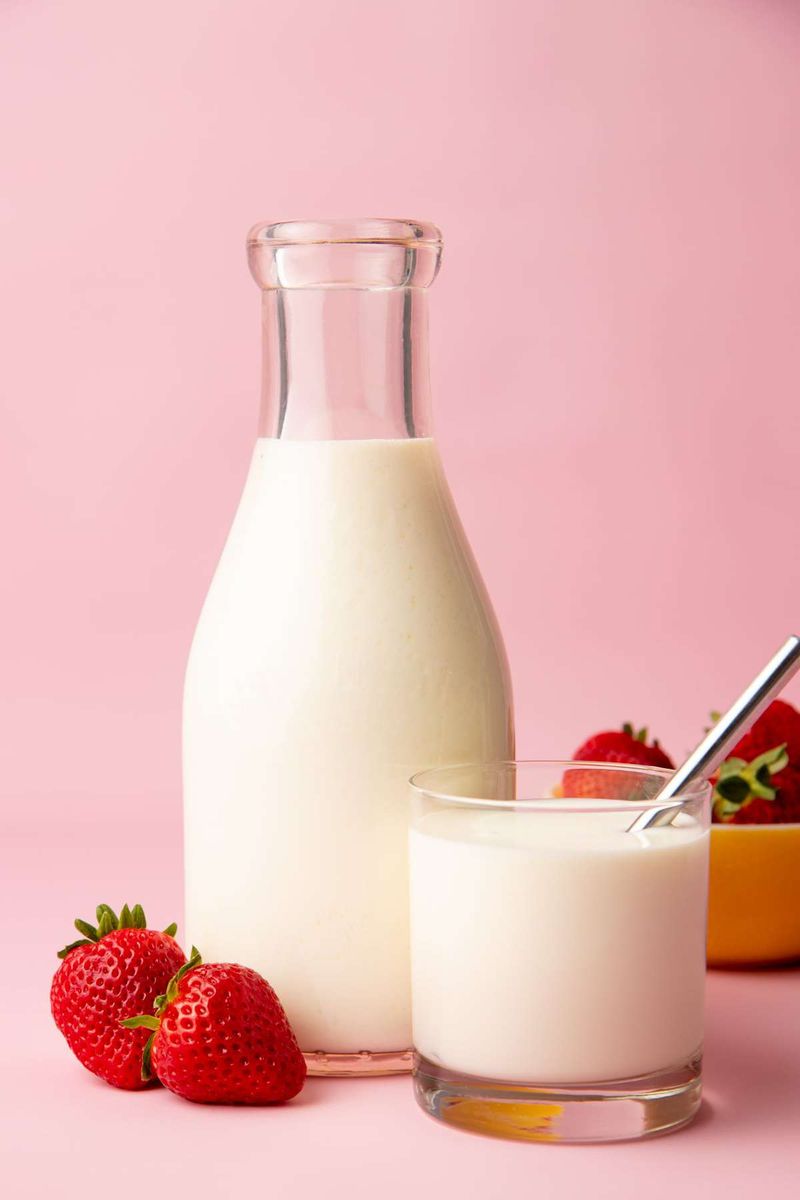
Kefir is a tangy, drinkable yogurt that boasts a wide variety of probiotic strains, making it a fantastic choice for anyone looking to boost their gut health. Originating from the Caucasus Mountains, this fermented beverage has a rich history and is known for its slightly sour taste and creamy texture.
Kefir can be enjoyed on its own or blended into smoothies, offering a refreshing and nutritious drink. With its unique combination of yeasts and bacteria, kefir supports digestion and can even aid in lactose digestion for those who are intolerant.
3. Kimchi

With its bold flavors and spicy kick, kimchi is a staple in Korean cuisine and a delight for those seeking a probiotic boost. This fermented cabbage dish is rich in flavor and offers a crunchy texture that pairs well with various meals.
Whether added to rice bowls, eggs, or even grilled cheese, kimchi provides a burst of taste and health benefits. It’s not only flavorful but also packed with lactic acid bacteria that support a healthy gut. Incorporating kimchi into your diet can be an exciting way to explore new culinary horizons.
4. Sauerkraut (Raw, Not Canned)
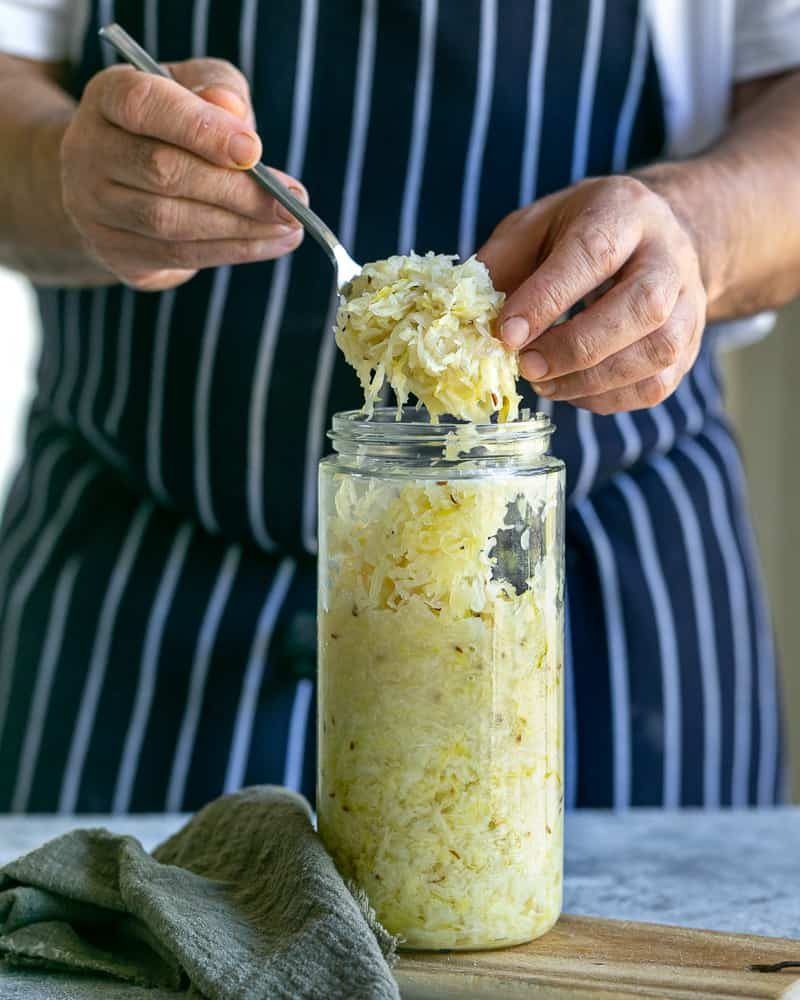
Sauerkraut, a classic fermented cabbage dish, is more than just a topping for hot dogs. When left unpasteurized, this tangy delight is packed with beneficial bacteria that can enhance your gut microbiome.
Eating sauerkraut straight from the jar or using it as a topping on sandwiches and salads offers a convenient way to enjoy its health benefits. Rich in vitamins and probiotics, raw sauerkraut provides more than just flavor; it promotes a healthy digestive system and can be a versatile addition to many dishes.
5. Miso Soup
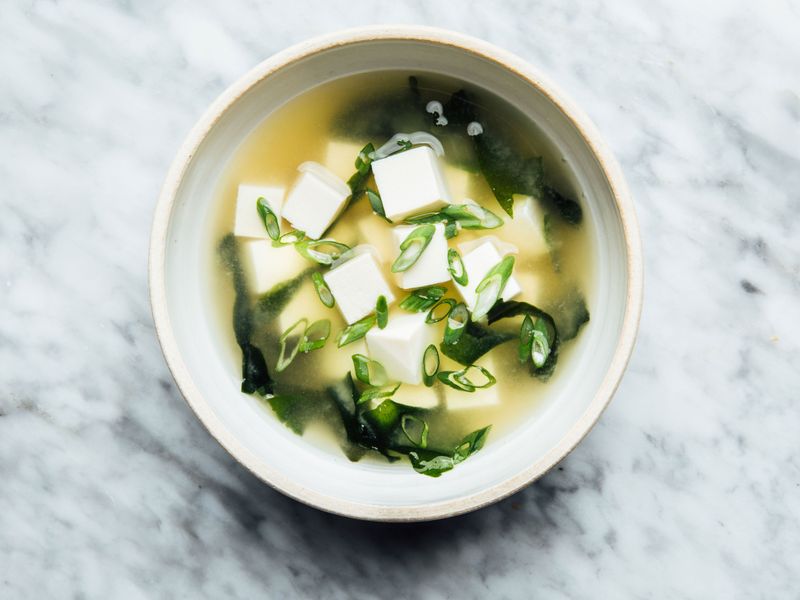
Miso soup is a comforting and nutritious option for those looking to incorporate probiotics into their diet. Made from fermented soybeans, miso paste creates a flavorful broth when added to warm (not boiling) water, preserving its probiotic qualities.
This Japanese staple is often enjoyed as a starter in meals, offering a savory taste that complements various dishes. The fermentation process not only enhances flavor but also introduces beneficial bacteria that support gut health. Enjoy miso soup with tofu and seaweed for an authentic experience.
6. Tempeh
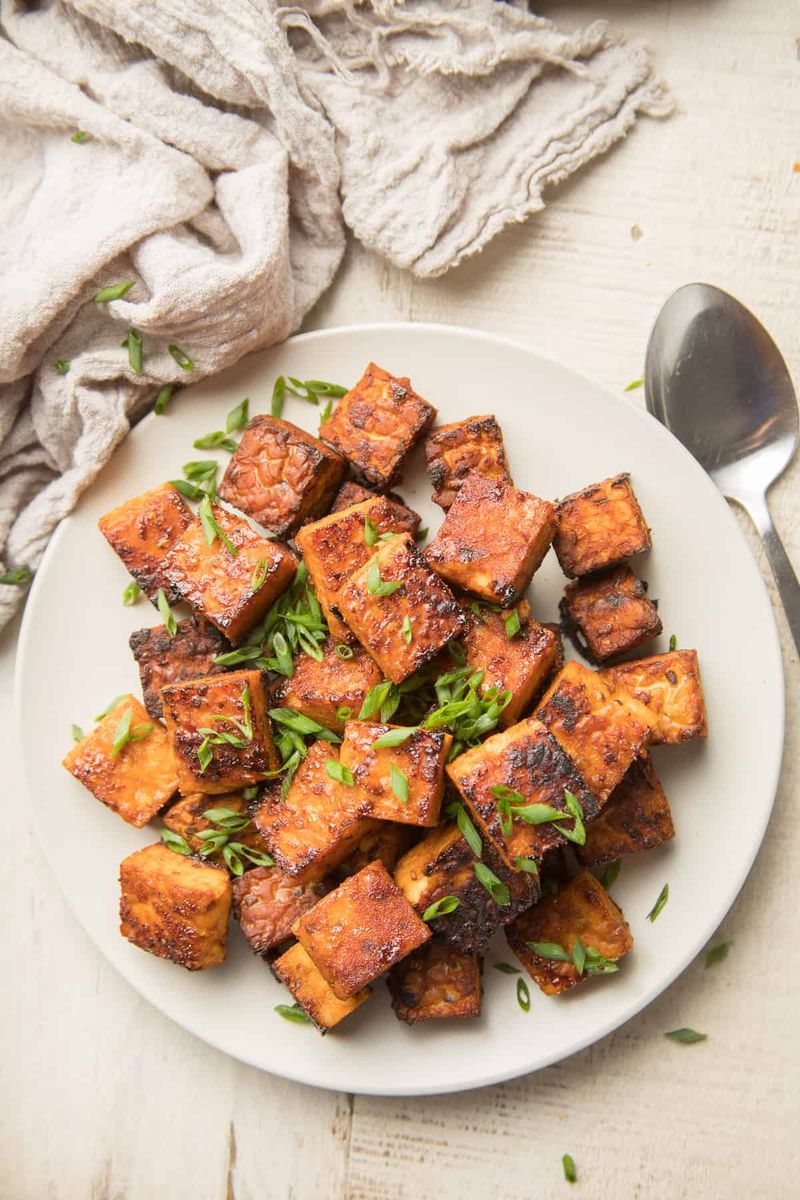
Tempeh, a fermented soy product, offers a nutty flavor and firm texture that makes it a versatile ingredient in many cuisines. Originating from Indonesia, tempeh is prized for its high protein content and probiotic benefits.
Sautéed, grilled, or crumbled into tacos, tempeh can be a delightful addition to your meals, providing a plant-based protein punch. The fermentation process enhances its nutritional profile, including its digestibility and vitamin content. Tempeh is an excellent choice for those looking to explore plant-based and probiotic-rich foods.
7. Kombucha

Kombucha, a fizzy fermented tea, has gained popularity for its unique taste and probiotic benefits. This effervescent drink is made by fermenting tea with a symbiotic culture of bacteria and yeast, known as a SCOBY.
Available in various flavors, kombucha offers a refreshing alternative to sugary sodas, though it’s wise to choose brands with minimal added sugars. Sipping on kombucha not only quenches thirst but also supports gut health due to its probiotic content. Enjoy it chilled for a delightful, health-promoting beverage.
8. Probiotic Cottage Cheese

Cottage cheese has taken a probiotic turn with some brands introducing live cultures into their products. This creamy, protein-rich cheese now offers gut health benefits, making it a multifunctional addition to your diet.
With a mild flavor that pairs well with both sweet and savory toppings, probiotic cottage cheese can be enjoyed on its own or as part of a meal. Add fresh fruits or a sprinkle of herbs to enhance its taste. It’s a delightful way to enjoy probiotics while also meeting your protein needs.
9. Fermented Pickles
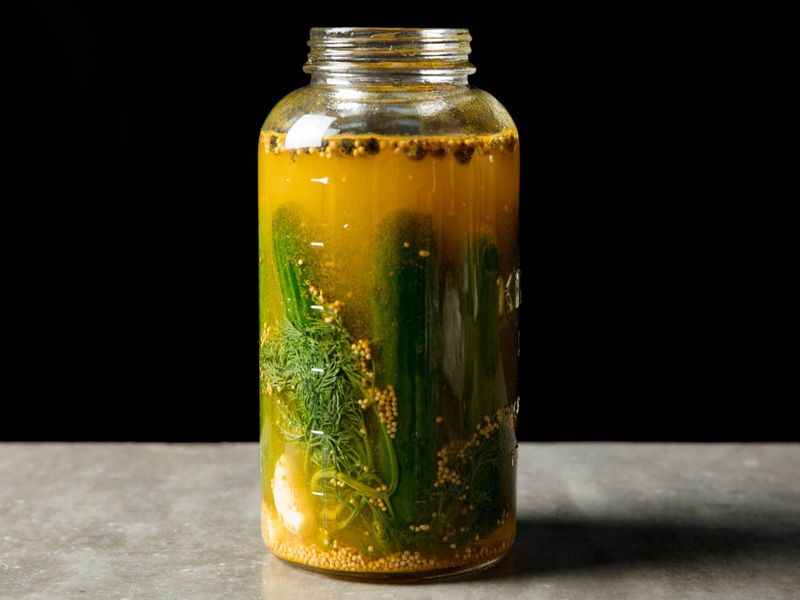
Fermented pickles, unlike their vinegar-based counterparts, are made with a salt brine that encourages the growth of beneficial bacteria. These crunchy, tangy pickles offer a delicious way to add probiotics to your diet.
Enjoy them as a snack, a side dish, or a complement to sandwiches and burgers. The fermentation process not only enhances their flavor but also introduces gut-friendly microbes. When selecting pickles, opt for those labeled as naturally fermented to ensure you’re getting the probiotic benefits.
10. Lassi (Indian Yogurt Drink)
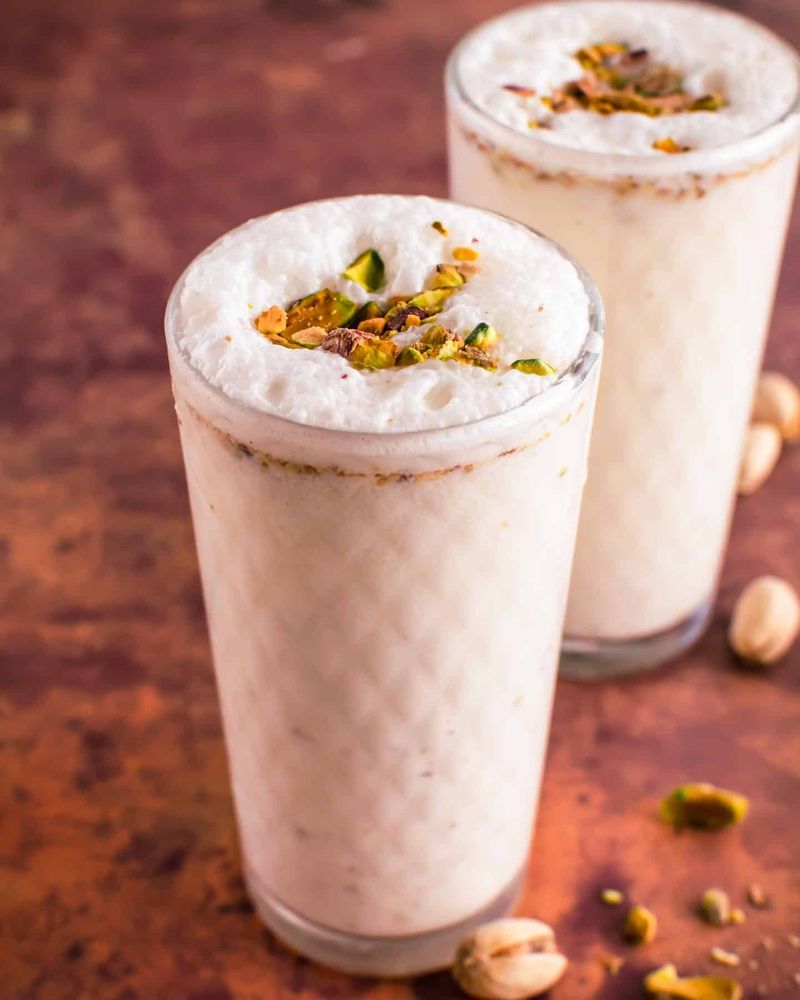
Lassi, a traditional Indian yogurt drink, offers a cooling and delicious way to consume probiotics. Made with yogurt, water, and spices like cardamom or cumin, lassi is refreshing and easy on digestion.
Enjoy it plain or sweetened with fruits for a flavorful twist. This drink not only cools the palate but also supports gut health with its probiotic content. Lassi’s rich cultural heritage and diverse flavors make it a versatile addition to any meal, whether as a beverage or a light dessert.
11. Sourdough Bread

Sourdough bread, with its distinct tangy flavor, is naturally leavened with wild yeast and bacteria. This traditional baking method not only gives sourdough its unique taste but also offers mild probiotic benefits.
Easier to digest than regular bread, sourdough can be enjoyed as part of a healthy diet. Whether as toast or a sandwich base, its chewy texture and rich flavor are satisfying and nourishing. For the best probiotic effects, opt for genuine sourdough from a bakery that uses traditional methods.
12. Probiotic-Rich Cheeses

Certain aged cheeses, like gouda, cheddar, and mozzarella, retain live cultures that offer probiotic benefits. These cheeses, when traditionally made and aged, provide a rich, savory flavor that complements many dishes.
Adding probiotic-rich cheese to your diet can be a tasty way to support gut health while enjoying a variety of textures and flavors. Look for raw or aged varieties, as these are more likely to contain live cultures. Enjoy them on a cheese board or as part of your favorite recipes.
